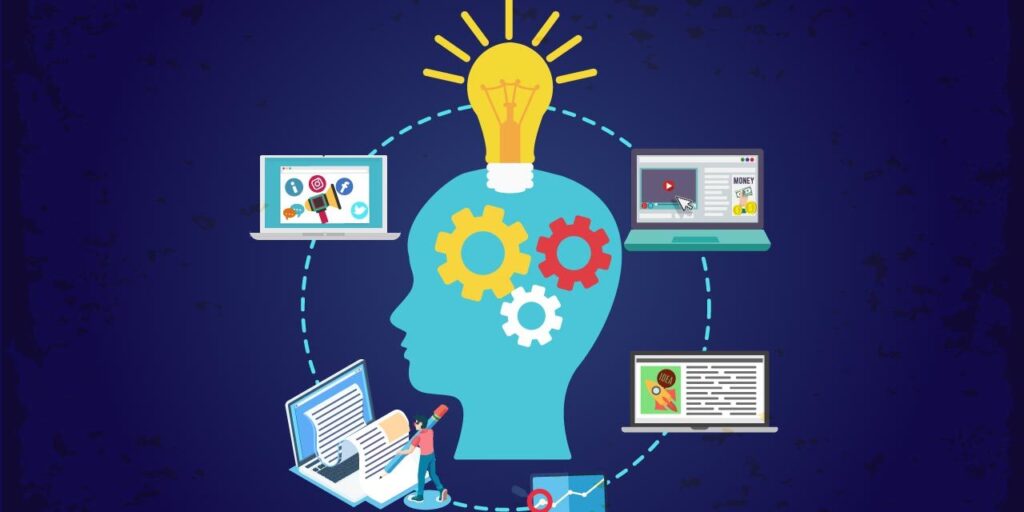
It is almost obvious that you have heard the name of Big Data as it is the new big thing in town. Some people have a perception that big data is even bigger than the internet. It is not an argument anymore that big data have become a part of our life. Some of us are still unable to figure out that what really big data is? Well the reality is big data is nothing much except us. It is our ability to create data on a daily basis on the internet. The big data boom is not just about analytics, but, it is related to smart data management and the most precious asset i.e. data. There are two opinions regarding the big data. One opinion is in the favor of big data and the other is against the big data.
The opinion in the favor of big data is not a threat to data security but indeed is a blessing. It allows us the freedom to carry out many processes in just a fraction of a second. It can be really helpful to trace activities which may restrict the criminal activities.The other view of big data is that it is a threat to the security to privacy. Companies are using big data to their advantage; companies promote their products in front of the people who are likely to have an interest in their product. Companies track their interest by keeping a keen eye on their web activities. The technology allows tons of threat data to be analyzed and used to thwart intruders. In the enterprise, it can be used to analyze volumes of network traffic to reveal insider trouble and advanced persistent threats. The drawback of big data is that it has been developed without considering the data security threats related to it. As big data uses Hadoop to manage the huddles of computers used to chomp the mountains of data fed into it.This can cause trouble to the defenders if they will be using orthodox security measures. Traditional security tools are developed to tackle threats to a single database. The cloud technology is safe but it can be leaked if the account gets exposed. In order to make the data foolproof secure. Its better use Folder Lock that can encrypt folders, you can save the encrypted folders in the cloud technology to simply make them inaccessible. The files that are secured by using Folder Lock even be right to access those files. Folder Lock is an amazing software equipped with all the best possible security measures you need to make your data safe and secure.
Curse Of Big Data

The curse of big data is that it can be overwhelming and challenging to manage. It can also lead to data overload, where users are bombarded with too much data and cannot make sense of it. Additionally, big data can lead to privacy concerns, as large amounts of data can be used to track individuals and their activities.
Dark Side Of Big Data
The dark side of big data is the potential for misuse and abuse of the data. Big data can be used to profile individuals and their activities, which can lead to discrimination or manipulation. It can be used to manipulate markets and influence public opinion. It can also be used to invade privacy and manipulate personal data. Big data can be used to target vulnerable populations or to create a surveillance state. Finally, big data can manipulate elections and political processes, undermining democracy.
Problems – Big Data
Big data is a problem because it can be used to make decisions in a way that is unethical or even illegal. It can be used to manipulate markets and influence public opinion. It can also be used to invade privacy and manipulate personal data.
Positive Impact Of Big Data
Big data can improve decision-making by providing insights into consumer behavior, customer preferences, and market trends. It can also be used to develop more efficient and effective services and products. Additionally, big data can be used to improve public health and safety by providing better data for medical research and analysis.
Is Big Data Good For Society?
Yes, big data can be used to improve decision-making, develop better services and products, and improve public health and safety. It can also be used to help organizations better understand their customers and target their marketing campaigns more effectively.
How Does Big Data Violate Human Rights?
Big data can potentially violate human rights by collecting and using personal data without the individual’s consent or by using data to discriminate against certain groups of people. Big data can also be used to track people’s online behavior without their knowledge or to target certain groups of people with specific advertisements.
How Does Big Data Change Our Life?
Big data has the potential to revolutionize the way we live our lives. It can be used to improve the accuracy of predictions, increase efficiency and reduce costs. Big data can help to identify trends, make better decisions, and optimize processes. It can also be used to improve customer service, personalize products and services, and better target marketing campaigns. Big data can also be used to gain insights into consumer behavior, allowing businesses to understand their customers better and effectively target their marketing campaigns.
Big Data Clean Or Dirty
Big data can be either clean or dirty. Clean data is structured and organized data that is easy to analyze and interpret. On the other hand, dirty data is unstructured and may contain errors or inconsistencies. Clean data is necessary for accurate analysis and predictions, while dirty data can lead to inaccurate results.
Issues With Big Data
1. Data Quality: Big data can be challenging to manage and maintain due to its large size, complexity, and heterogeneity. Data quality issues can lead to inaccurate or incomplete results.
2. Data Privacy: As big data is often collected from multiple sources, it can be difficult to ensure the privacy and security of individuals’ personal data.
3. Data Governance: The lack of clear guidelines and regulations around the use of big data can lead to the misuse or exploitation of data
4. Storage and Processing: Storing and processing large amounts of data can be costly and time-consuming.
5. Data Interpretation: Analyzing and interpreting big data can be challenging due to its complexity.
Is The Use Of Big Data Worth The Risks?
The use of big data can bring great benefits, but it also carries some risks. It is essential to weigh the risks and benefits before deciding whether or not to use big data. The risks associated with big data include privacy and security concerns, data governance issues, storage and processing costs, and data interpretation challenges. On the other hand, the potential benefits of big data include improved decision-making, better customer service, and more efficient operations. Ultimately, the decision of whether or not to use big data.
Future Of Big Data
Yes, big data has a future. Big data is becoming increasingly important in many industries, and its applications and potential are growing exponentially. Big data can be used to identify trends, optimize processes, and improve customer experiences. Companies are already leveraging big data to gain insights into their customers and make better decisions. As technology continues to evolve, big data will become even more important in the future.
Should We Treat Big Data As A Public Good?
No, big data should not be treated as a public good. Big data is a valuable asset that should be used to benefit businesses and individuals alike. Companies should have control over their data and be able to use it to make decisions that are in their best interests. Companies should also be able to protect their data from misuse or exploitation. Treating big data as a public good could lead to a lack of privacy and security, potentially leading to data misuse.
